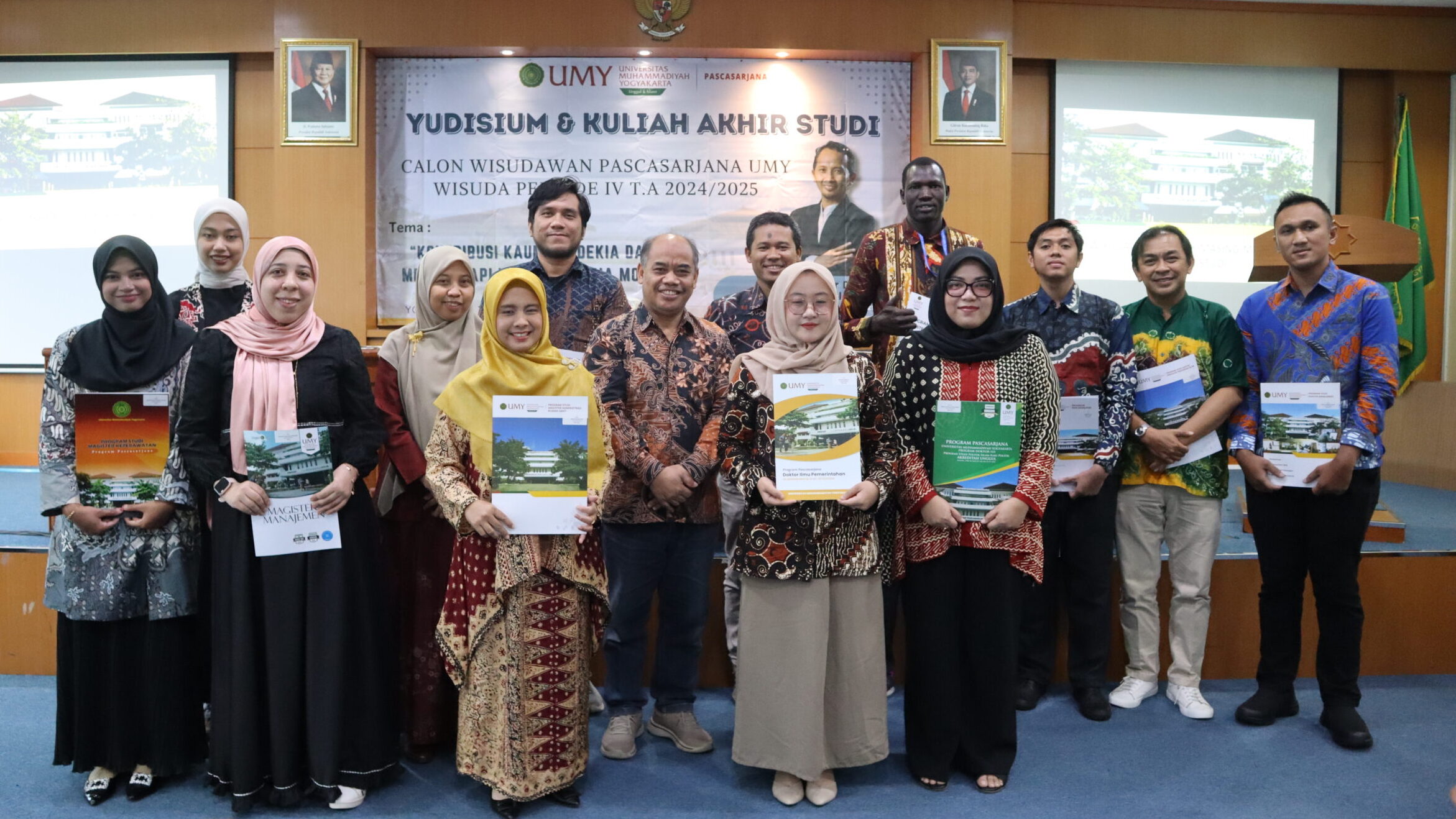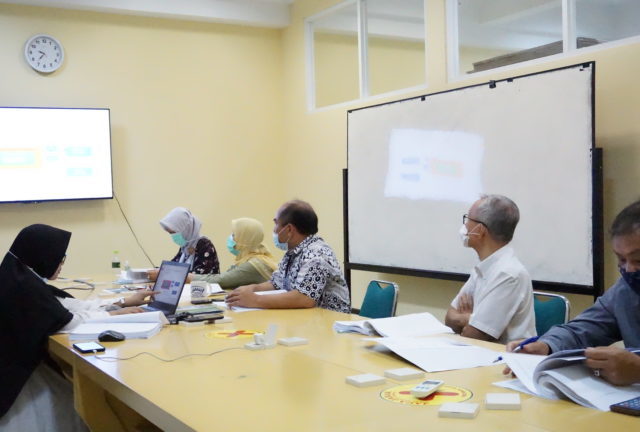

As reported on the official website of the Doctoral Program in Islamic Politics, Made Devi Wedayanti, a student of Islamic Politics-Political Science at Universitas Muhammadiyah Yogyakarta (UMY), successfully conducted a dissertation research seminar. The seminar was held by the Doctoral Program in Islamic Politics-Political Science on Thursday, December 31st, at the UMY Postgraduate Study Hall. She presented her research findings titled “Corporate Political Activities in Riau Province through Corporate Social Responsibility” to the examination committee.
Made Devi explained that based on the annual report of PT. Indah Kiat Pulp And Paper, the company used financial incentives through donations to political parties and policymakers. PT. Indah Kiat Pulp and Paper was involved in financing the Hanura political party. This was due to the fact that the company’s president commissioner, Saleh Husin, S.E., M.Si., had a background in politics, including serving as: First, a member of the DPR/MPR RI from the Hanura Party faction (2009-2014), Second, the Secretary of the Hanura Party Faction in the DPR RI (2011-2014), Third, the Deputy Secretary-General of the Hanura Party DPP (2007-2012), Fourth, the Chairman of the Hanura Party DPP (2012-2015), Fifth, the Minister of Industry of the Republic of Indonesia (2014-2016), and Sixth, the Deputy Chairman of the Hanura Party DPP (2017-2020).
She added that the implementation of CPA-CSR at PT Aneka Gas Industri Tbk was in a substitutional condition, with constituency building and messaging as the strongest CPA strategy. The implementation of CPA-CSR at PT Indah Kiat Pulp And Paper was in a complementary condition, with constituency building and legal strategy as the strongest CPA strategies. And the implementation of CPA-CSR at PT Riau Andalan Pulp And Paper was in an incompatible or standalone condition, with constituency building and messaging as the strongest CPA strategies.
Meanwhile, Made saw that the factors influencing CSR as part of CPA were the educational background of the leadership, the number of leadership achievements, the relationship between the leadership and political parties, the relationship between the leadership and the military, and the number of employees.
The examination committee members included Prof. Dr. Achmad Nurmandi, M.Sc., Prof. Dr. Sjafri Sairin, M.A., Dr. Hasse J., M.A., Dr. Dyah Mutiarin, M.Si., Dr. Mega Hidayati, M.A, and Dr. Zuly Qodir, M.Ag (session chair). The examination was open and witnessed by other Islamic politics students. The examiners provided suggestions and input on the presented material. Made Devi was asked to revise her dissertation research findings according to the committee’s guidance.